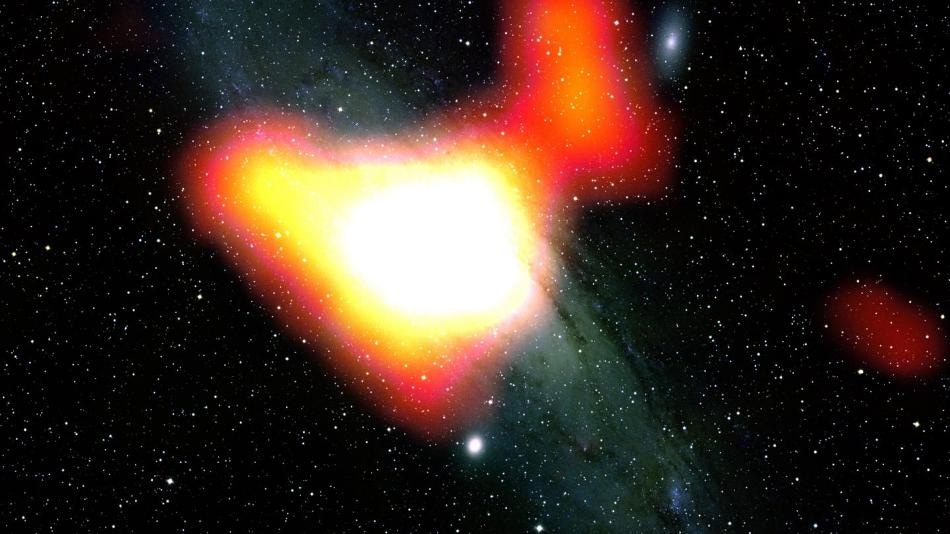Feb 22 2017
NASA's Fermi Gamma-ray Space Telescope has found a signal at the center of the neighboring Andromeda galaxy that could indicate the presence of the mysterious stuff known as dark matter. The gamma-ray signal is similar to one seen by Fermi at the center of our own Milky Way galaxy.
 The gamma-ray excess (shown in yellow-white) at the heart of M31 hints at unexpected goings-on in the galaxy's central region. Scientists think the signal could be produced by a variety of processes, including a population of pulsars or even dark matter. Credit: NASA/DOE/Fermi LAT Collaboration and Bill Schoening, Vanessa Harvey/REU program/NOAO/AURA/NSF
The gamma-ray excess (shown in yellow-white) at the heart of M31 hints at unexpected goings-on in the galaxy's central region. Scientists think the signal could be produced by a variety of processes, including a population of pulsars or even dark matter. Credit: NASA/DOE/Fermi LAT Collaboration and Bill Schoening, Vanessa Harvey/REU program/NOAO/AURA/NSF
Gamma rays are the highest-energy form of light, produced by the universe's most energetic phenomena. They're common in galaxies like the Milky Way because cosmic rays, particles moving near the speed of light, produce gamma rays when they interact with interstellar gas clouds and starlight.
Surprisingly, the latest Fermi data shows the gamma rays in Andromeda -- also known as M31 -- are confined to the galaxy's center instead of spread throughout. To explain this unusual distribution, scientists are proposing that the emission may come from several undetermined sources. One of them could be dark matter, an unknown substance that makes up most of the universe.
Source: https://www.nasa.gov/